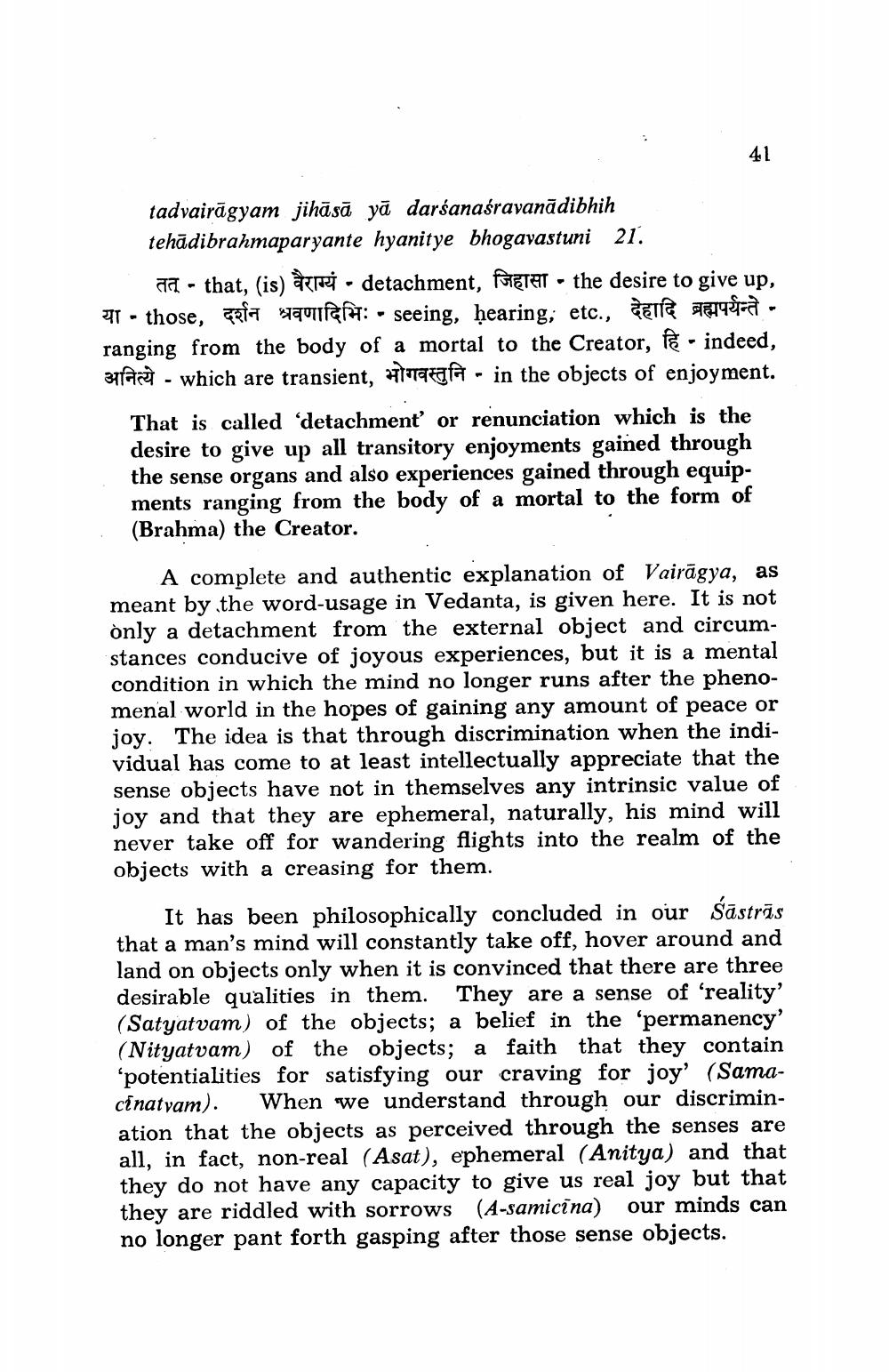________________
tadvairāgyam jihāsā yā darśanaśravanādibhih tehādibrahmaparyante hyanitye bhogavastuni 21.
तत् - that, (is) वैराग्यं • detachment, जिहासा • the desire to give up, It - those, Feata qua: - seeing, șearing, etc., et Elranging from the body of a mortal to the Creator, f - indeed, अनित्ये - which are transient, भोगवस्तुनि - in the objects of enjoyment.
That is called 'detachment or renunciation which is the desire to give up all transitory enjoyments gained through the sense organs and also experiences gained through equipments ranging from the body of a mortal to the form of (Brahma) the Creator.
A complete and authentic explanation of Vairāgya, as meant by the word-usage in Vedanta, is given here. It is not only a detachment from the external object and circumstances conducive of joyous experiences, but it is a mental condition in which the mind no longer runs after the phenomenal world in the hopes of gaining any amount of peace or joy. The idea is that through discrimination when the individual has come to at least intellectually appreciate that the sense objects have not in themselves any intrinsic value of joy and that they are ephemeral, naturally, his mind will never take off for wandering flights into the realm of the objects with a creasing for them.
It has been philosophically concluded in our Šāstrās that a man's mind will constantly take off, hover around and land on objects only when it is convinced that there are three desirable qualities in them. They are a sense of 'reality' (Satyatvam) of the objects; a belief in the 'permanency' (Nityatvam) of the objects; a faith that they contain ‘potentialities for satisfying our craving for joy' (Samacinatyam). When we understand through our discrimination that the objects as perceived through the senses are all, in fact, non-real (Asat), ephemeral (Anitya) and that they do not have any capacity to give us real joy but that they are riddled with sorrows (A-samicina) our minds can no longer pant forth gasping after those sense objects.




